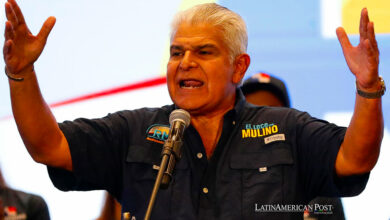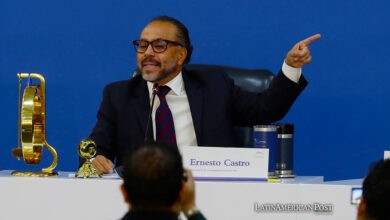Colombia to Cut Diplomatic Ties with Israel Amid Gaza Conflict

Colombian President Gustavo Petro announced the severance of diplomatic relations with Israel, citing actions in Gaza and branding Israeli leadership as genocidal, sparking international reactions.
In a bold diplomatic move, Colombian President Gustavo Petro declared that Colombia would sever its diplomatic ties with Israel. This announcement came during a speech in Bogotá, where Petro addressed supporters during International Worker’s Day celebrations. The decision underscores Colombia’s stance against Israel’s recent actions in Gaza, highlighting a growing trend among Latin American nations taking firm positions in global geopolitics.
Petro’s Bold Diplomatic Move: Breaking Ties with Israel
President Petro’s decision is not just about foreign policy but also reflects his broader commitment to social and economic reforms within Colombia. In his speech, he described the Israeli government under Prime Minister Benjamin Netanyahu as “genocidal,” a term he has used previously and one that has now culminated in the decision to break diplomatic relations. This rhetoric resonated with his audience in Bogotá, receiving widespread applause as he tied these international actions to his domestic agenda of transformative change.
The Colombian president has further engaged with the international legal community by requesting to join South Africa’s case against Israel at the International Court of Justice, accusing Israel of genocide. This move aligns with Petro’s previous criticisms and positions Colombia within a specific ideological spectrum concerning international human rights and judicial intervention.
The reaction from Israel was swift and severe. Israeli Foreign Minister Israel Katz labeled Petro’s actions as “antisemitic and full of hate,” interpreting the diplomatic break as a gesture of support for Hamas. This group had recently conducted an attack on Israeli military bases and communities on October 7, which Israel views as part of ongoing hostilities. Katz’s comments underscore the deep divisions and the complex narrative surrounding the Israeli-Palestinian conflict, where actions and motivations are heavily scrutinized and interpreted through various geopolitical lenses.
Colombia is not alone in its recent diplomatic shifts regarding Israel. Bolivia severed ties with Israel in late October of the previous year, marking a significant moment in Latin America’s diplomatic relations with Israel. Other countries in the region, including Chile and Honduras, have also taken steps to recall their ambassadors, signaling a broader realignment or reevaluation of diplomatic stances within Latin America towards the Israeli-Palestinian conflict.
Implications and Considerations
These actions by Latin American countries reflect a larger pattern of willingness to engage in more assertive foreign policy moves, often reflecting domestic political agendas and broader ideological shifts. For Petro, the break with Israel is consistent with his government’s emphasis on social justice and human rights, which is central to his administration’s domestic and international identity.
The implications of Colombia’s diplomatic break are significant. It could potentially influence its relationships with other nations that hold contrasting views on the Israeli-Palestinian conflict. It also poses questions about the impact on Colombian citizens, including business interests and the Colombian Jewish community, which may find themselves navigating a more complex landscape of international relations.
Furthermore, this decision comes at a time when global attention to the Israeli-Palestinian conflict is particularly intense, with international organizations and countries grappling with how best to respond to the ongoing violence and humanitarian concerns in the region. Petro’s alignment with South Africa in legal actions at the International Court of Justice illustrates a proactive approach to international law and solidarity with Palestinian advocacy on the global stage.
The International Community’s Response
As Colombia takes this decisive foreign policy stance, the international community will watch closely. The reactions and consequences of this decision will unfold in the diplomatic arenas of the United Nations and other international bodies, where the dynamics of Middle Eastern politics frequently command attention.
Also read: Stolen Arsenal: Corruption Strips Colombia’s Military of Bullets and Missiles
President Petro’s decision marks a critical moment in Colombian foreign policy, reflecting a broader narrative of Latin America’s evolving role in global geopolitical discussions. As countries in the region assert their positions on contentious international issues, the landscape of international relations continues to evolve, influenced by a complex web of domestic politics, regional solidarity, and global strategic interests.





